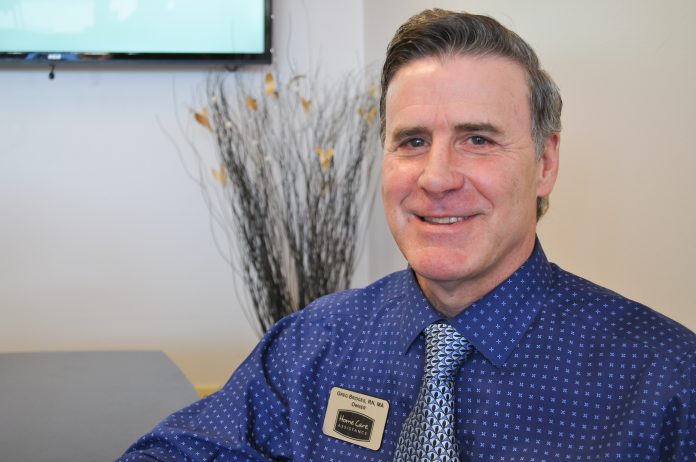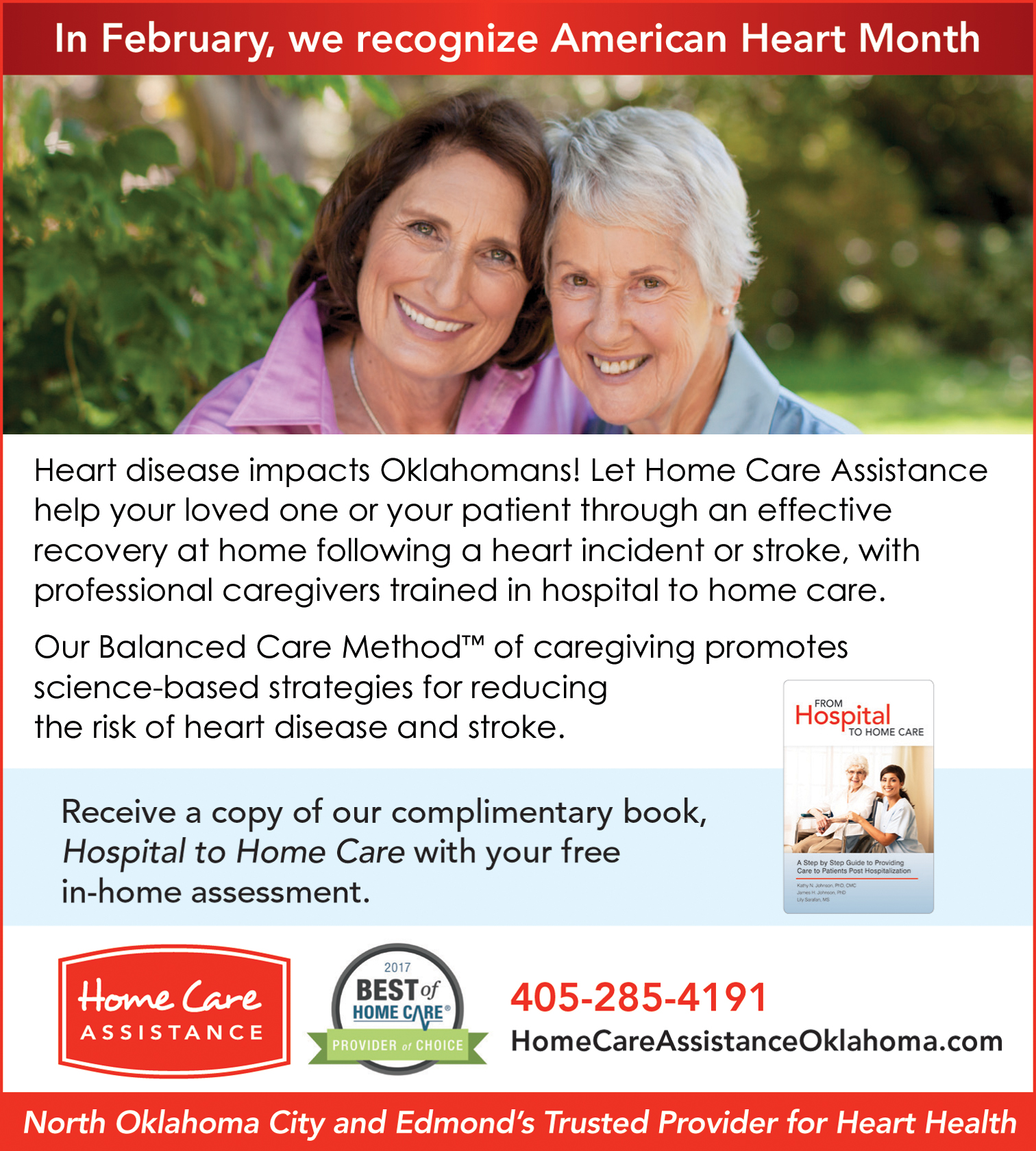
by Bobby Anderson, Staff Writer
It was early 1980s and Greg Bridges was teaching and coaching high school in New York.
His father, a dean at a local college, blindsided him one day when he suggested he pursue a nursing degree.
“A what?” was Bridges’ reply.
He thought it over and it did make sense. Marrying a love of science with a love of teaching, Bridges became an RN.
“It combined well,” said Bridges, who initially worked in an ICU before teaching at a college and then going on to home care. “The students I used to teach always said they wanted to be a nurse since they were a little girl. I couldn’t say that but it was a great move.”
Fast forward 36 years later and Bridges is still nursing and teaching, but this time it’s one-one-one in the home as co-owner of Home Care Assistance.
“I think the biggest impact is we are stabilizing peoples’ home environment,” Bridges said of his home care company that boasts a 97% satisfaction rate. “We’re buying quality time. We always talk about optimizing our client’s experience at home. That’s psychologically, cognitively and emotionally and physically – and safety is our No. 1 monitor.”
The focus is on activities of daily living – allowing clients to do as much as they possibly can on their own while also having help to shore up any deficits.
“It’s A through Z, personal care, dressing …” Bridges said. “Statistically, 60 percent of people who come out of the hospital with strokes have depression. Having that relationship with a caregiver one-on-one and not feeling like they are a burden … can really lift someone out of that depression.
“It’s broad spectrum.”
Services range from personal care to medications reminders, running errands and light housekeeping.
“You want to maintain an optimal environment for them to thrive,” Bridges said.
The days of extended farm families taking care of people are coming to a close.
The job of care has fallen on the sandwich generation, which is stretched too thin.
“We’ve become much more transient and a lot of people (move to town) because they have a son or daughter who live here,” Bridges said. “They have one prong (of attachment) and it’s too much. You see the burden between the mother/father or daughter or the sister or brother and they become the caregiver and it alters that relationship.”
That’s why Bridges, and co-owner Melissa Hill, saw a need. And with Bridges’ clinical background it added something that few others have.
“That’s extremely valuable in our business,” Hill said. “When Greg can come onsite and provide one-on-one coaching, instruction and education they really latch on to that. And I think it brings our caregivers up to a higher level.”
Before opening Home Care Assistance, Bridges spent a decade working with Hill consulting in quality improvement.
“Coming from the QIO one of the big things was reducing polypharmacy, looking at falls and the all the different reasons like exacerbations that people come back to the hospital,” Bridges said. “We worked with a number of entities – nursing homes and home healths were the biggest ones – and hospitals to reduce that hospitalizations. But when you really get down to it lifestyles are what ultimately puts a person into the hospital. The readmissions are a trip-up of simple things like falls or not taking their medication or hydration.”
It’s knowing what to look for that is making Home Care Assistance valuable not only to their clients but health care providers as well.
Through its Hospital Readmission Reduction Program, Medicare has been financially penalizing hospitals with high rates of Medicare readmissions and is extending the penalties to other settings of care such as skilled nursing facilities.
It’s estimated that in 2017 hospitals with relatively high readmission rates were penalized more than half a billion dollars.
That occured when Medicare patients were readmitted to the hospital within 30 days of discharge for the same diagnosis.
At Home Care Assistance, the care philosophy seeks to optimize the wellness of seniors and bring energy, independence and joy in this special phase of life.
And the goal is for that to happen in the home.
“With us you transfer that into the home and the https://alldaypill.com/valtrex/ practical things that keep a person safe,” Bridges said. “We try to focus on consistent assignments so the same caregiver and same team knows the patient’s idiosyncrasies. Watching a person that closely, supporting physical therapies and having that much feedback and intervention on a daily basis, we really nip all sorts of stuff in the bud.” https://homecareassistance.com/













